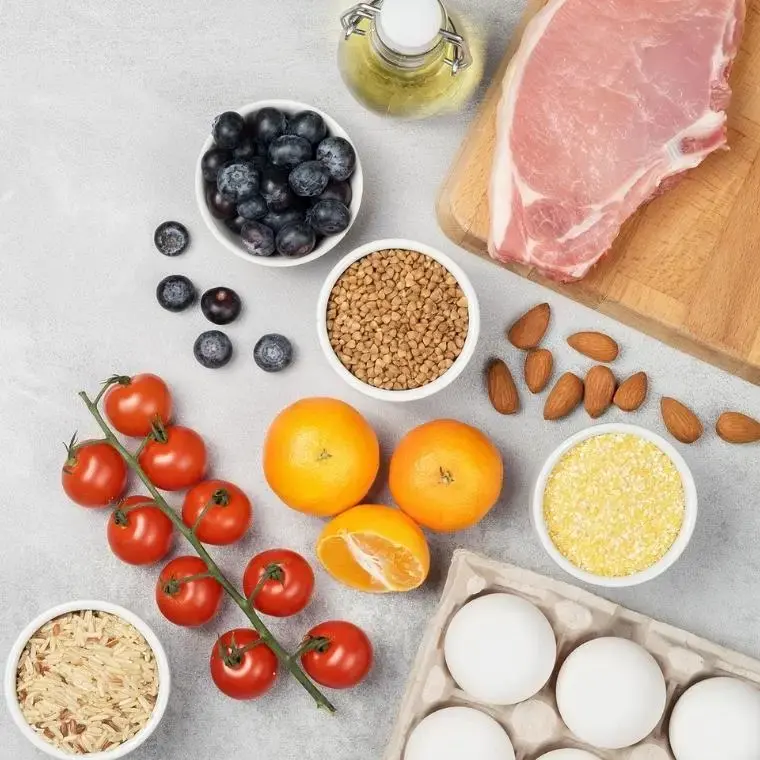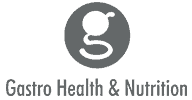Eating with ibs
Low FODMAP Diet
Eating With IBS
Low FODMAP Diet
What is FODMAP?
Healthy Diets
FODMAPs are a group of food contents that are not completely digested or absorbed in our intestines. When FODMAPs reach the small intestine, they move slowly, attracting water. When they pass into the large intestine, FODMAPs are fermented by gut bacteria, producing gas as a result. The extra gas and water cause the intestinal wall to stretch and expand, and symptoms of Irritable bowel syndrome
FODMAPs are found in a wide range of foods, when eaten, they move slowly through the small intestine attracting water. When they reach the large intestine, gut bacteria use the FODMAPs as a fuel source to survive. The bacteria rapidly ferment FODMAPs, producing gas as a result.
These events occur in all people (i.e. people with and without IBS). The difference is that people with IBS can have problems with motility (the speed at which contents move through the intestines) and/or a highly sensitive gut wall. The extra water and gas in the intestines, causes the intestinal wall to stretch and expand and results in common gut issues such as pain, excessive wind, bloating, distension and altered bowel habit (diarrhea, constipation or both).
The Low FODMAP Diet is not a common or traditional diet like other diets. It is for those who struggle with absorbing specific carbohydrates in certain foods. FODMAP stands for: Fermentable, Oligosaccharides, Disaccharides, Monosaccharides, And Polyols. These are types of carbohydrates that are metabolized into sugars, which are found in various foods. These carbohydrates, or FODMAPs, are not easily absorbed by the bowel. This malabsorption can lead to irritable bowel syndrome or other bowel disorders. Symptoms of these disorders include gas, abdominal pain, bloating, nausea, and/or pain after consuming foods that contain FODMAPs. Anything that contains fructose, high fructose corn syrup (HFCS), or sorbitol is considered a FODMAP food. These include certain fruits and vegetables, processed foods, some medications, and various other food items.

Some fruits, fruit juices, and vegetables contain a high amount of fructose that may cause some symptoms such as gas, bloating, abdominal pain, and diarrhea. If these symptoms occur, it is best to avoid those foods. Below, is a chart of which fruits, juices, and other foods may be avoided or reduced depending on the level of FODMAP present. When taking liquid medication such as cough medicine, it is best to check the label to see if there is any sorbitol, mannitol, xylitol, maltitol, or isomalt present. These sugar alcohols may cause adverse gastrointestinal symptoms.
The Low FODMAP Diet works by first eliminating any high FODMAP foods that you eat too much of. The list of these foods is found in the chart below. If this doesn’t quite work, then cut out all high FODMAP foods for 6-8 weeks. After this period of time, slowly start to incorporate high FODMAP foods back into your diet and see which ones make symptoms worse. After a while, you should be able to determine which FODMAP foods you are intolerant to.

FODMAP Diet Plan
Choose Health
| Food Group | Serving Size and Suggestions | Low FODMAP | Moderate FODMAP | High FODMAP |
|---|---|---|---|---|
| Fruits | ½ cup of cut fruit or a medium (baseball size) whole fruit. Limit to 1 to 2 servings per day. Fresh or fresh frozen fruit may be better tolerated than canned fruit. Tolerance may depend on the amount you eat at one time. Limit concentrated sources of fruit, such as dried fruit and fruit juices. | Bananas Blueberries Cantaloupe Grapefruit Grapes Honeydew Kiwi Lemons Limes Oranges Papaya Passion Fruit Pineapple Raspberries Rhubarb Strawberries Tangelos Note: Avoid eating large amounts of any fruit. | Canned Fruit | Apples Applesauce Avocados Blackberries Dried Fruits (e.g., raisins, dates) Fruit Juice Lychees Pears Persimmons Watermelons Stone Fruits: Apricots Cherries Mangos Nectarines Peaches Plums Prunes |
| Vegetables | ½ cup for most vegetables or 1 cup of leafy greens Limit to 1½ to 3 servings per day. Cooked vegetables may be tolerated best since cooking causes a loss of free sugars. Keep in mind tolerance may depend on the amount you eat at one time. | Bamboo shoots Bok choy Carrots Celery Chives Cucumber Eggplant Green beans Kale Lettuce Parsnips Pumpkin Radish Red bell pepper Spinach Squash Sweet potato Turnip White potato Zucchini | Corn Green Peas Tomatoes | Artichokes Asparagus Beets Broccoli Brussels sprouts Cabbage Cauliflower Fennel Garlic Green bell peppers Leeks Mushrooms Okra Onions Shallots Sweet corn Tomato paste |
| Dairy | Kefir Lactose Free Milk Lactose Free Cottage Cheese Lactose Free Yogurt Hard or Aged Cheeses Butter Cream Cream Cheese | American Cheese | Milk Yogurt Ice Cream Cottage Cheese Ricotta Cheese |
|
| Grains | Quinoa Rice Millet Cornmeal Gluten-Free Products | Oats Buckwheat Sourdough White Bread | Wheat Barley Rye |
|
| Legumes and Nuts | Firm And Medium Tofu Pumpkin Seeds Sesame Seeds Sunflower Seeds | Canned and drained chickpeas and lentils Nuts and nut butters except pistachios and cashews Flax Seeds | Soy (silken tofu, textured vegetable protein, edamame, soy nuts, soy milk) Beans Chickpeas Hummus Lentils Pistachios Cashews |
|
| Beverages | Espresso Filtered Coffee Green Tea Peppermint Tea Black Tea | Soft drinks that include high fructose corn syrup or crystalline fructose Apple Juice Other Fruit Juices Apple Cider Instant Coffee Chamomile Tea Fennel Tea |
||
| Sweeteners | Granulated Sugar Evaporated Cane Juice Brown Sugar Brown Rice Syrup Pure Maple Syrup Corn Syrup Sugar Cane Molasses Aspartame Saccharin Sucralose Stevia | Cocoa | High Fructose Corn Syrup Crystalline Fructose Honey Agave Sugar Beet Molasses Sorbitol Xylitol Mannitol Maltitol |
Complete The Form To Schedule An Appointment
What Happens Next?
After submitting your Full Name, Phone Number, and Email Address, we will contact you within 48 hours to confirm your appointment details. Please note that the time & day that you request may not be available. For urgent issues, please call us at (713) 429-4550.
What Should I Bring?
For your first visit, please arrive at least 20 to 30 minutes before your appointment time. This will allow you to fill out the necessary forms for your visit.
If you have your previous medical records dealing with the reason for your appointment, please arrange to have those records forwarded to our office as early as possible.
Please bring a list of medications you are taking, including over-the-counter drugs and those prescribed by other physicians.
Drop us a line and we’ll contact you within 48 hours.
Call Us
713.429.4550
Office
1259 FM 1463 Suite 500
Katy, TX 77494
